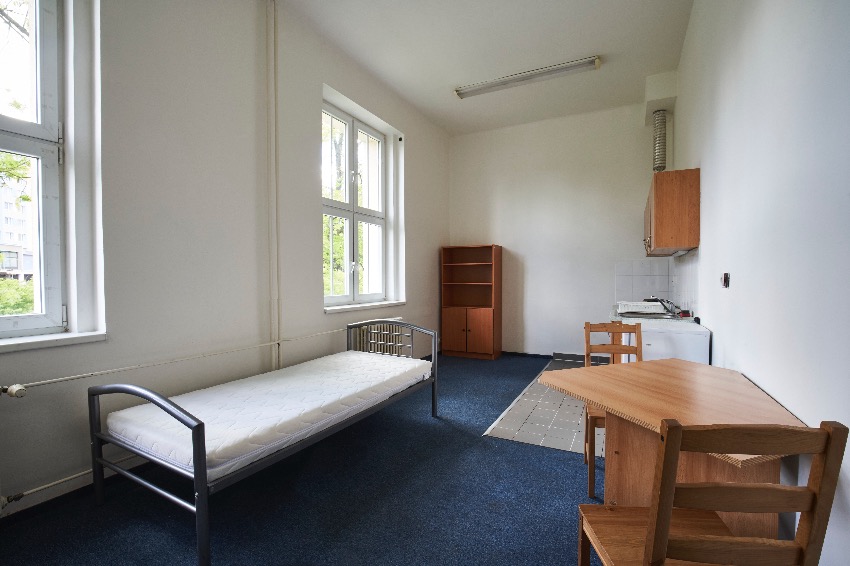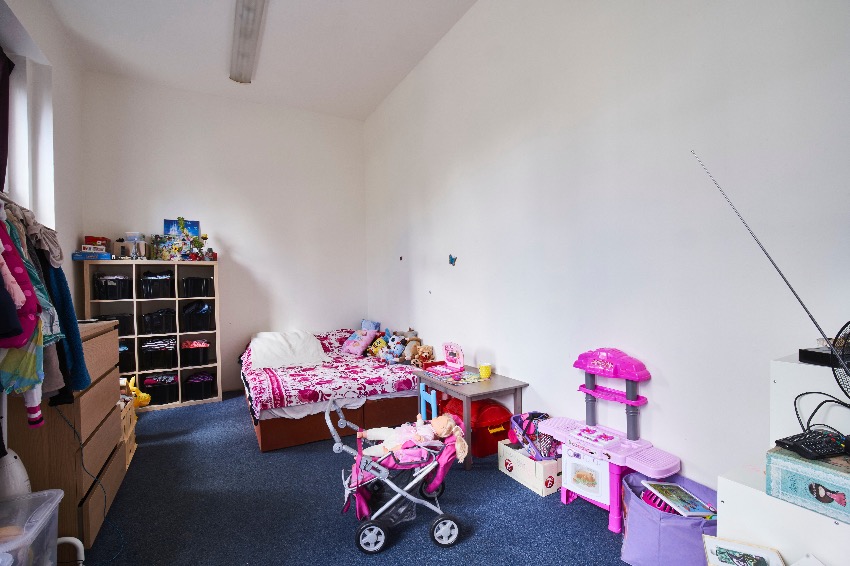Combatting homelessness, boosting independence
Despite housing being recognised as a fundamental right, the number of people sleeping rough in Europe these days is increasing. The traditional profile of Europe´s homeless population is shifting and includes more and more children and young people, migrants, women, and entire families. Furthermore, homelessness rates are expected to grow further due to the economic crisis and job insecurity brought about by the COVID-19 pandemic. Moreover, COVID-19 has added an additional strain on people already experiencing poverty and homelessness, as they tend to disproportionately suffer poor health and lack access to hygiene and health care.
Within the Czech Republic, around 100,000 people are estimated to be homeless or at risk of homelessness. To combat this worrying trend, the Czech Red Cross operates several projects offering shelter to those experiencing homelessness, particularly women facing crises, mothers with children, young people who have recently left institutional care, and who have served a prison sentence. Beyond offering a temporary home, Czech Red Cross staff and volunteers also provide regular meals and opportunities to prepare food independently, as well as social and legal counselling.
“Halfway House” – offering a home to young people leaving institutional care & people released from prison
In many European countries, a large proportion of those at risk of homelessness are young people who have lost their claim to institutional care and other services once they reach legal age. Turning 18 is a crucial moment for young people, and especially those who depend on external support. With support measures often ending immediately upon reaching legal age, young people’s daily lives are suddenly destabilised, increasing the risk of them becoming homeless.

The local branch of the Czech Red Cross in Beroun offers the so-called “Halfway House” programme for young people up to the age of 26 who have left an institutional context, such as institutional education, child and youth care facilities, but also imprisonment. “The Halfway House was established in 2002 and we usually have 8 guests every year. The young people we work with and their families are in a very difficult life situation. Therefore, we are very happy that we can help them and make their life a little bit easier,” says Renáta Roubalová from the Czech Red Cross in Beroun. Within the Halfway House, people who would face risks to their health, safety, and wellbeing if they return to their families can benefit from temporary accommodation and social services. The Halfway House project facilitates a smooth transition from institutional care towards independence in everyday life. The main aim of the Halfway House programme is to teach young people essential skills related to independent living, such as running a household, contacting authorities, and basic financial literacy. This way, they are faced with less difficulties when (re-)integrating into society and finding employment and suitable housing. The Halfway House consists of three studio apartments which include private bathrooms and kitchenettes. Individualised services are provided, focused on preserving the rights and dignity of those living there.
The Czech Red Cross’ local branches in Kladno and Louny also operate shelters tailored to providing access to social services for people recently been released from prison and men over the age of 18 who find themselves in difficult social situations, often connected to the loss of housing. By offering accommodation, places to independently prepare meals and legal counselling, these aim is to solve individual problems and prevent dependence on the social assistance system. Other Czech Red Cross local branches also assist people who are still currently serving a sentence in prison by providing material aid, such as hygiene supplies or clothing.

Offering a home to women facing crises and mothers with children
The Czech Red Cross local branches in Beroun, Kladno and Svitavy also offer temporary housing and social service to women facing crises associated with the loss of housing and single mothers with children. The shelters aim to support women in accumulating new skills to strengthen their self-sufficiency so that they can return to an independent life. Czech Red Cross staff and volunteers apply a holistic approach, encompassing measures for mental and physical health and wellbeing, safety, family relationships, employability and finding housing beyond the shelters. Thereby, the shelters themselves offer a safe space to overcome previous challenges and provide perspectives for a prosperous future. Moreover, legal and social counselling sessions further support the wellbeing of women in crises and provide guidance corresponding to their current situation. For example, through creating conditions for re-establishing and strengthening relationships with family members wherever possible.
The Halfway House project by the Czech Red Cross illustrates multifunctional approaches to combat homelessness. They strengthen the independence of those experiencing homelessness through legal and social counselling, while boosting skills that are valuable for finding permanent housing and employment. Moreover, a safe and trusted environment is created to strengthen social ties, all of which promote independence and minimise the risk of a return to sleeping rough.
Basic information
Activity name
Halfway House
Country
Czech Republic
Duration
ongoing
Partners
Czech Red Cross, Cities of Beroun, Králův Dvůr and Hořovice

